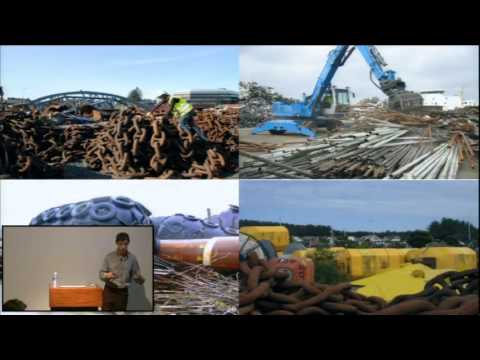
Lecture date: 2012-02-23
Designing Fabrication series organised by Alan Dempsey
The lecture will exemplify the idea that architecture can emerge from revealing and utilizing a specific design-potentials of a given project environment. What we term a “Relational Design” urges the creation of a mutual encounter with local conditions such as matter/energy properties, specific human resources and the environment. It constantly invents processes and experiments, which can help to trigger awareness of local and original space-generating possibilities and achieve a more integrated relationship with their surroundings. Relational design thereby addresses both specific spatial qualities as well as the design process itself.The lecture is structured in four chapters:Environment explores the context specific interaction within a given natural, vernacular and industrial environment. Transformation projects bring into play and are developed from existing structures, waste and historical processes. Materiality projects explore the intrinsic spatial potential of material systems on a macro and a meso scale. Urban Development examines the interrelations between social, programmatic, cultural and economic domains.
Reinhard Kropf is co-founder, along with Helene Stangeland, of the Norwegian practice Helen & Hard. ‘We aim to creatively engage with sustainability, not only in the design of spaces, but also in the conception and organisation of the design process, including construction and fabrication. Our goal is move away from a solely technical and anthropocentric view, allowing the project to unfold in relation to its physical, social, cultural and economic context.’ Helen & Hard’s many awards include the Norwegian National Award for Good Building and Environmental Design for the Preikestolen Fjellstue (Pulpit Rock Mountain Lodge), 2009, and 2010 Chicago Athenaeum Museum of Architecture and Design Green Good Design Award.
source